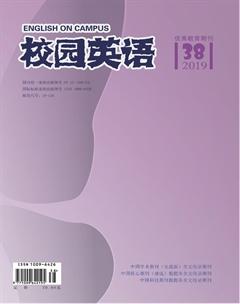To Judge or Not to Judge: A Discussion on the idea of Judging in the Analects of Confucius and the Bible
Mathew 7:12 says “do to others what you want them to do to you”. It can be roughly paraphrased as “to give others what you think is the best” and this is the golden rule. On the other hand, Confucius said that “do not do to others what you dont want them to do to you (己所不欲,勿施于人)”; this is the silver rule. While many western scholars believe that the silver rule is beneath the golden one illustrated in the bible, I beg to differ.
The Bible teaches people that even when someone struck you on your right cheek, you should always turn your left cheek towards the said person to show your love and forgiveness. I opine that this kind of teaching is wrong and impractical. Should the golden rule become a reality, there will be no concept of right and wrong. The good gets hurt, yet the bad remains unharmed. Isnt allowing culprit to get away without any punishment equal to being an accessary to crimes? Such golden rule gives rise to the ongoing epidemic of “moral kidnapping” and “the perfect victim”. Our current society is ruled by laws and regulations; we can not rely solely on the Lords Ten Commandments. Expecting everyone to behave properly without solid supervision is idealistic and na?ve; such daydreaming will only leave our society vulnerable when real crimes occur. I would love more than anything to just look up at the stars and think about the good of this realm, however, we human live on the ground and there are real problems crying to be solved.
Matthew 7:1 says “do not judge, or you will be judged”. John 8:7 says “let him who is without sin cast the first stone”. On the other hand, Confucius said that let those who were merciful and fair be the judges. In chapter Liren of the Analects of Confucius, he said “only the benevolent ones could love and dislike people (唯仁者能好人,能惡人)”. To realize his ideal society of benevolence, righteousness, manners, wisdom and credit, Confucius believed people must be able to reflect on themselves and others. The foundation of reflection is being able to tell what is right and what is wrong. Confucius opined that certain people, the fair and righteous ones, are qualified to be the judges of such concept even though they are mere mortals. On the contrary, in Bible, only the Lord can be the judge of mortals, he is the only law maker.
In chapter Gongzhichang of the Analects of Confucius, Zigong said that “ those I do not want people to do to me, I will not do to others,” Confucius replied with “that is not up to you.” To me, his teaching means that one can not hold this na?ve idea which is that others will treat you exactly the way you treat them, since after all, things do not always go as you wish. Luke 6:37 disagrees with Confucius by saying “judge not, and you will not be judged; condemn not, and you will not be condemned; forgive, and you will be forgiven”. It is rather dangerous to not judge anything for the sake of not getting judged by others. This kind of thoughts often pop up when I am doing a group project, I tend to withdraw my opinion even when I know for sure that other people are wrong, because I fear to cause them to lose face and also getting criticized myself. But do not forget, if no one points out mistakes, our society will never learn to grow.
The fundamental difference between the golden rule and the silver rule is not about the level of benevolence or pragmaticism. I believe the real divergence lies in the ultimate destination of life which the two set of philosophy are trying to guide people to. If one take faith in the logic that people could go to a promised land without sins and crimes after death should he or she forgive and love humanity and stay loyal to God in life, then he or she can ignore sins and crimes in this life for the judgement day will come eventually. Confucius, however, asked people to think otherwise. Everything he preaches aims at applying the four cardinal virtues (humanity, justice, propriety and wisdom) to cultivating ones personality, regulating families, governing countries and making the world whole and peaceful. He aimed at this life, not the afterlife. There is no pretty afterlife for the civilian who died because of the wars and tyranny; there is no fancy promises for people who endured injustice in this life and “justice delayed is justice denied”.
According to Chinese ancient philosophies, you either choose to enlighten people with benevolence and moral integrity or you use laws and regulations to discipline them, either way, you are fighting for this life, this reality. This is why I value silver rule above the golden one and why we should always judge ourselves, the others and the reality that we exist within.
【作者簡介】郝帅帅,南开大学。

